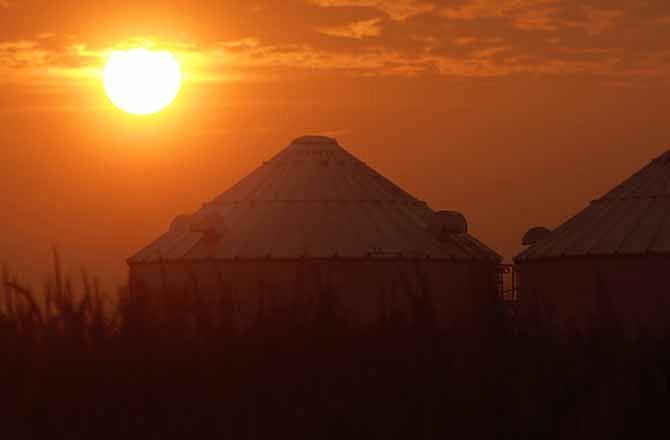OMAHA, Neb. (AP) - The rural economy is sputtering in 10 Midwest and Great Plains states as farmers try to cope with this summer's severe drought, according to the newest monthly survey of bankers released Thursday.
The Rural Mainstreet Index slipped to 47.1 this month, its lowest level since April 2009 and the second straight month of negative growth. Any score below 50 on the 1-to-100 index suggests that the economy will contract in months ahead.
The index fell from 47.9 in July and 56.7 in June.
Nearly one-third of the bankers reported that the drought had hurt businesses in their areas in August. The results were compiled from rural areas of Colorado, Illinois, Iowa, Kansas, Minnesota, Missouri, Nebraska, North Dakota, South Dakota and Wyoming.
"The drought is dampening economic activity across the region," said Creighton University economist Ernie Goss, who helped conduct the survey. "Companies with close ties to the farm, such as ethanol, and agriculture equipment sellers are experiencing pullbacks in growth. I expect food processors to take a hit later in the year as higher food prices work their way through the system."
Jim Eckert, president of Anchor State Bank in Anchor, Ill., blamed the slowdown on lingering fears over regulations from Washington.
"Uncertainty over future tax policy and the costs of Obama Care have many of our farm and commercial customers sitting on the sidelines in borrowing and hiring staff," he said.
The report cited weakening growth in farmland prices but noted "a great deal of variance" between areas that use irrigation and others that rely on rainfall. The August farmland price index growth weakened with an August reading of 52.8, its lowest level since July 2009.
Even so, survey organizers said August marked the 31st consecutive month that farmland prices have shown positive growth.
But an index that tracks farm equipment sales plummeted in August to 38.3, its lowest level since October 2008. The index had been at 46.1 in July.
"The drought is putting a dent in farmland price growth and the purchase of agriculture equipment, including trucks," Goss said.

